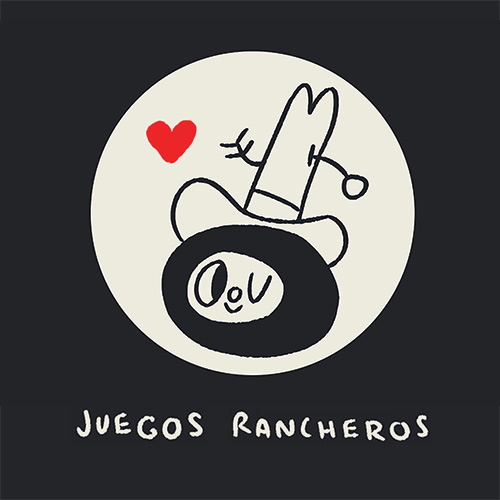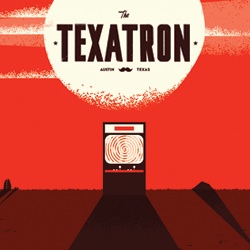ONE MORE GO: GOD HAND, OR WHY HARDCORE GAMES RING MY BELL
Videogames are sometimes disparagingly described as mere wish fulfillment power fantasies. If we accept that for a moment, then here’s what I learned about my psyche today. Sometimes, you have days bad enough and journeys home stupid enough that all you want is to be able to boot someone in the nuts so hard that they ring like a bell. Hrwah! Pow! DING!
Thankfully, since videogames are all just wish fulfillment power fantasies, I can do exactly that. And, while I’m at it, sate my secret, Freud-perplexing lust for midgets, cigars, chihuahuas and robots. Capcom’s majestic God Hand (pronounced, gloriously, ‘Goddohando‘ in Japanese, preferably in a screaming crescendo of plosives) is a game designed purely to meet the needs of your inner unreconstructed badass, the part of you that calls people douchebags under its breath and gravitates naturally towards leather overcoats.
It’s not as if beat’em ups have ever in their history been a source of mundane, minimal restraint, but God Hand takes all the excesses of the genre and amps them up to eleven, dresses them in spandex and spanks them on the arse.
It’s a game that does a lot of things that we often think games are bad at, and does them brilliantly. It’s funny – properly funny – in all kind of ways. It surreal, satirical and self-aware, and full of elegantly conceived jokes: musical, verbal and visual. It is, on its own terms, a credible romance, as Gene’s feelings for Olivia morph between adoration and exasperation, with occasional bouts of flat-out terror. But it’s a game with a secret – a very surprising secret for a game conceived from the off as a purely hardcore experience.
It gets harder the better you are at it. The corollary is true, too, and I’m going to type it out because it’s a sentence which gives me goosebumps. It gets easier the worse you are at it. We’re nearly 40 years into commercial videogame design, and it’s still one of the rarest things you can say about a game. Most games get harder the worse you are at them. You burn through ammo and potions and resources. You miss secret power-ups and fail to access short-cuts.
The need to meaningfully reward players means that successful play is usually met with prizes which make you more powerful, one way or another. Which feels great if you’re doing great, but leaves poorer players going up against the boss with a pea-shooter that’s low on ammo and no health-packs – circumstances which would tax even an expert player, not that an expert player would ever encounter them, because by the time they hit the boss they’ve already got two rocket launchers and an overshield.
Here’s what God Hand does: as you deal more damage and build your combo, your difficulty meter goes up. This affects things like how many enemies attack you at once, and how much damage you can sustain. The better you do, the harder the game gets. Do well enough, and the difficulty maxes out at Level DIE. Manage to sustain it at that level and you get showered in points, but decide that you’re not having fun any more and all you need to do is drop the combo, take a hit, and let the game settle back to an easier state. It’s elegant, transparent and user-controlled. The perfect middle-ground between set-in-stone challenges and invisible adaptive difficulty.
What’s surprising is it’s often in the most hardcore games that you find the nicest solutions for how to support weaker players without changing or diluting the play experience. Shmups that reward bullet-grazing, or which have a smart bomb powered relative to how much shit you’re in at any given moment (like Bangai-O) are neat examples. Letting you tweak credits and continues lets novice gamers get the most out of experience without threatening the purity of the high scores chased by the pros.
Think about it, though, and you’ll realise it’s not surprising at all. It all comes down to that power fantasy. For it to work, succeeding has got to be hard, or there’s no sense of achievement, no sense of douchebag-crushing victory. But for it to be secure, failing also has to be hard, lest you become the douchebag yourself.
The sterner the challenge, the better the safety-net you need, or you risk producing in your players the exact feeling they’ve come to your game to escape from. Turns out the ultimate test of the perfect hardcore game is how easy it is. Although the booting-in-the-nuts-till-they-ding thing is a pretty good rule of thumb.
[Margaret Robertson is the former editor of Edge magazine and now videogame consultant. One More Go is her regular Offworld column in which she explores the attractions of the games she just can’t stop going back to.]
Previously:
One More Go: Wipeout, or The Single Best Games Console You Never …
One More Go: Rittai Picross, or the One-Word Secret of Good Game …
One More Go: Majora’s Mask, or How to be your own hero of time – Offworld
One More Go: Werewolf, or why playing games can give you hairy palms – Offworld
One More Go: World of Warcraft, home is where the hearth is – Offworld
One More Go: Rhythm Tengoku, or Why plucking the hairy onion makes …
One More Go: Disgaea's quest for numerical orgasm – Offworld
One More Go: Donkey Kong Jungle Beat – Offworld
One More Go: Ikaruga, The Big Enemy Is Approaching – Offworld
One More Go: Ranarama – Offworld
One More Go: New York Times Crosswords – Offworld
See more posts about: Offworld Originals, One More Go






